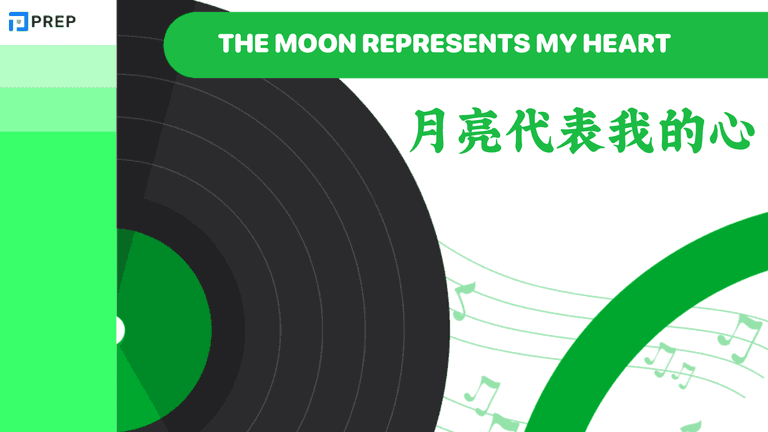Colleague and College: Definitions, Usage, and Exercises
The words Colleague and College look similar but have very different meanings in English. This guide explains their definitions, highlights key differences, and shows real-life examples. You’ll also find exercises to practice and avoid common mistakes in IELTS or daily use.

I. What Do Colleague and College Mean?
The English words “colleague” and “college” are frequently confused by learners of English, especially due to their similar spelling and pronunciation. However, their meanings and usage are completely different. Understanding these two terms clearly is crucial for communicating accurately in both academic and professional contexts.
What is “Colleague”?
According to the Cambridge and Oxford Learner’s Dictionaries, colleague is pronounced as /ˈkɑː.liːɡ/. It is a noun that refers to: A person that you work with, especially in a profession or a business.
Examples:
- Please read this memo carefully and hand it on to your colleagues.
- Jack’s colleagues became suspicious when he did not appear at work anymore.

The word “colleague” is commonly used in professional settings, such as the workplace, meeting rooms, office communication, or corporate emails.
Common expressions with “colleague”:
|
Word/Phrase |
Example Sentence |
|
Senior colleague |
I had the privilege of learning from my senior colleagues. |
|
Male / Female colleagues |
In our diverse workplace, male and female colleagues collaborate seamlessly. |
|
Dear colleague |
I appreciate my dear colleague’s hard work and dedication. |
|
Distinguished colleague |
I had the honor of presenting alongside a distinguished colleague. |
|
Experienced colleague |
It's always beneficial to have an experienced colleague on the team. |
|
Friends and colleagues |
Celebrating with friends and colleagues made it more special. |
-
Build related terms with office vocabulary.
What is “College”?
According to the same dictionaries, college is pronounced as /ˈkɑː.lɪdʒ/. It is also a noun, but it refers to: A place where students go to study or to receive training after they have finished secondary school.
In American English, “college” can also mean a university.
Examples:
- I met my husband when we were in college.
- Anna graduated from an art college.

The term "college" is generally used in the educational context, especially to refer to higher education institutions or the life and activities related to studying at such institutions.
Common expressions with “college”:
|
Word/Phrase |
What is College? |
|
In college |
During my time in college, I discovered a passion for literature. |
|
At college |
I met some of my closest friends at college. |
|
College of [subject] |
She enrolled in the College of Engineering. |
|
Go to college |
Many students aspire to go to college for further knowledge. |
|
College student / professor |
As a college student, Alex juggled academics and sports. |
|
Accredited college |
Always choose an accredited college for quality education. |
|
College application |
Writing a strong college application takes planning. |
|
College administrator |
The college administrator manages academic schedules. |
-
Review school subjects vocabulary for academic contexts.
1. Key Differences Between Colleague and College
Although colleague and college may look or sound similar, they are completely different in meaning, usage, and pronunciation. This confusion is especially common among English learners, particularly in writing or speaking tasks where both words appear frequently.
|
Aspect |
Colleague |
College |
|
Part of Speech |
Noun |
Noun |
|
Meaning |
A person you work with (especially in a professional or office setting) |
A place of higher education, typically attended after high school |
|
Pronunciation (UK/US) |
/ˈkɒl.iːɡ/ or /ˈkɑː.liːɡ/ |
/ˈkɒl.ɪdʒ/ or /ˈkɑː.lɪdʒ/ |
|
Usage Context |
Workplace, discussions about professionals and coworkers |
Educational settings, student life, academic institutions |
|
Example Sentence |
I had a meeting with my colleague this morning. |
She hopes to study at a top college next year. |
The most important distinction to remember is:
- Colleague refers to a person.
- College refers to a place.
This basic difference (person vs. place) is essential to using the words correctly. A colleague is someone you might work with after you graduate from college.

-
For spelling traps, see desert and dessert.
2. Examples of Colleague and College in Sentences
To better understand the difference between colleague and college, it's helpful to look at how each word is used in real sentences. Below are examples that show their correct usage in context. These examples also reinforce the distinction: colleague is a person, while college is a place.
Colleague in sentences (person)
- My colleague and I are working on a new marketing project.
- She had lunch with a few of her colleagues after the meeting.
- I always ask my senior colleague for advice before making a final decision.
- The whole team, including my colleagues, welcomed me warmly on my first day.
- He praised his colleagues for their dedication and teamwork during the conference.
College in sentences (place)
- She hopes to attend an art college in New York next year.
- I made some of my best friends while I was in college.
- He teaches economics at a community college.
- After high school, most students in my town apply to colleges nearby.
- The college campus is known for its beautiful architecture and green spaces.
A sentence with both “colleague” and “college”
- I met my best colleague at college, and we now work together at the same company.
- Many of my current colleagues also studied at the same college I graduated from.
These examples show how context determines which word is appropriate. Mixing them up can lead to confusion, so it's important to remember that “colleague” refers to a person, and “college” refers to an educational institution.
II. Exercises and Practice with Colleague and College
To make sure you fully understand the difference between colleague and college, the following exercises will help you identify the correct usage in a variety of situations. These tasks are especially useful for ESL learners looking to avoid common mistakes in speaking, writing, and exams.
Exercise 1: Multiple Choice
Choose the correct word (colleague or college) to complete each sentence.
- After graduation, she plans to apply to a top __________.
a) colleague
b) college - My __________ helped explain the new software at the meeting.
a) colleague
b) college - He met his wife when they were both studying at the same __________.
a) colleague
b) college - Last week, I had lunch with my old __________ from my previous job.
a) colleague
b) college - The __________ library has over 100,000 books and journals.
a) colleague
b) college
Exercise 2: Fill in the Blank
Use either colleague or college to correctly complete each sentence.
-
Sarah is a great __________—she’s always willing to support the team.
- I’ve known him since we were in __________ together.
- That __________ is known for its environmental science program.
- I had the chance to present alongside a distinguished __________.
- Many students dream of attending an Ivy League __________ in the US.
Answer
[prep_collapse_expand open_text="View more" close_text="Show less"]
|
Exercise 1 |
Exercise 2 |
|
|
[/prep_collapse_expand]
III. Take the First Step Towards IELTS Success
PREP hopes that through this article, you have understood the definitions, usages, and differences between Colleague and College. Pressed for time? Our intensive IELTS preparation courses are designed to help you achieve top results in record time, with practical tips and interactive lessons:
- IELTS training online: Break Barriers, Achieve Band 7

Hi I'm Chloe, and I am currently serving as an Product Content Administrator at Prep Education. With over five years of experience in independent online IELTS study and exam preparation, I am confident in my ability to support learners in achieving their highest possible scores.
Comment
Premium content
View allPersonalized roadmap
Most read












